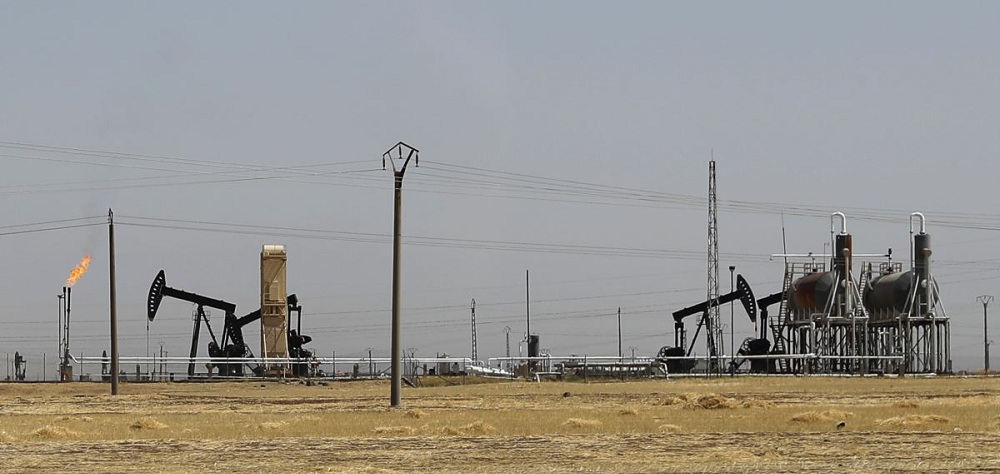Alwaght- As the home, regional, and international actors in northern Syria press for further influence, Deir ez-Zor province in eastern Syria is rising to become a small Syria sample and the crisis flashpoint where a substantial part of the crisis-hit Arab country’s developments will be determined there.
But what does make Deir ez-Zor an emerging hot spot for various actors in labyrinthine equations of a country struggling with terrorism and foreign intervention for nearly a decade? To answer this question, the aspects of the significance of this province should be brought in the spotlight. This will give a chance of looking into the complexity of the case from the viewpoint of the players.
Why is Deir ez-Zor important?
Deir ez-Zor, also the name of a city as the center of the province, with a size of 33,000 square kilometers and a population of about 1.2 million was the heart of eastern Syria before eruption of the devastation war in 2011. The province separates the borders of Syria and Iraq and hosts the most crucial linking route between Syria and Iraq capitals Damascus and Baghdad. The Euphrates River crosses this province which neighbors Hasakah, Raqqa, and Homs provinces.
In addition to its geographical importance, two other characteristics make Deir ez-Zor even more important. First, its rich oil and gas reserves and its considerable mineral sources, all currently controlled by the Syrian Kurds under a military alliance named Syria Democratic Forces (SDF) and the US forces which have been in the country since 2014.
Deir ez-Zor: Syria’s Kirkuk
The complexity of the vision of actors on Deir ez-Zor in the new Syrian developments is in a way that we can foresee a future for the province similar to that of the Iraqi resource-rich province of Kirkuk which stands as the heart of crisis between Iraqi central government and the autonomous Kurdish region. To see how important Deir ez-Zor is, we can look at Trump's withdrawal strategy. After announcing an exit from the north and northeast, the US president kept forces in two Syrian spots: Deir ez-Zor oilfields and Al-Tanf near Iraq border. Both are the reserves houses of the Syrian energy. With this in mind, we can now see each actors’ vision of Deir ez-Zor:
The US: In Trump’s viewpoint, stay in Deir ez-Zor means playing a win-win game with the Syrian Kurds. According to his economic logic, keeping forces in Syria and helping the Kurds is useless unless it has benefits for Washington. On Saturday, Trump in comments to the journalists at the White House said: “I like oil. We are keeping oil,” as he tried to justify keeping US troops in Syrian oilfields. He continued that they will remain in Deir ez-Zor.
Recent reports suggested that armored vehicles carrying troops have been deployed to Deir ez-Zor from Iraq. Trump warned that he will put up “a hell of a fight” against any force trying to take the oilfields from the US.
"We should be able to take some also, and what I intend to do, perhaps, is make a deal with an ExxonMobil or one of our great companies to go in there and do it properly," he added during a press conference on killing ISIS leader Abu Bakr al-Baghdadi.
The Kurds: The Syrian Kurds lost pockets of lands in northern areas of Syria as a result of tough strikes by the Turkish army over the past two weeks, as the US, an ally of them since 2014, failed to protect them. However, they now hope that under control of the Deir ez-Zor oilfields they, on the one hand, can restore the American support and, on the other hand, follow their autonomy ambitions through restoring their oil-based sources of income.
Syria, Russia, and Iran: These three allies find it categorically illegitimate for the US to deploy forces to Deir ez-Zor energy resources. They argue that Deir ez-Zor and its oil should be returned to Damascus, the seat of legitimate government led by President Bashar al-Assad. The Kurds should do so, the trio sees, through entering constructive relations with the central government. Assad’s government needs oil incomes to provide funds, especially to the huge reconstruction costs after nine years of unceasing war.
So, Deir ez-Zor’s strategic position in the future equations and a massive conflict of interests of the major players in Syria’s developments are what to make the province a new epicenter of confrontation between various sides.



























